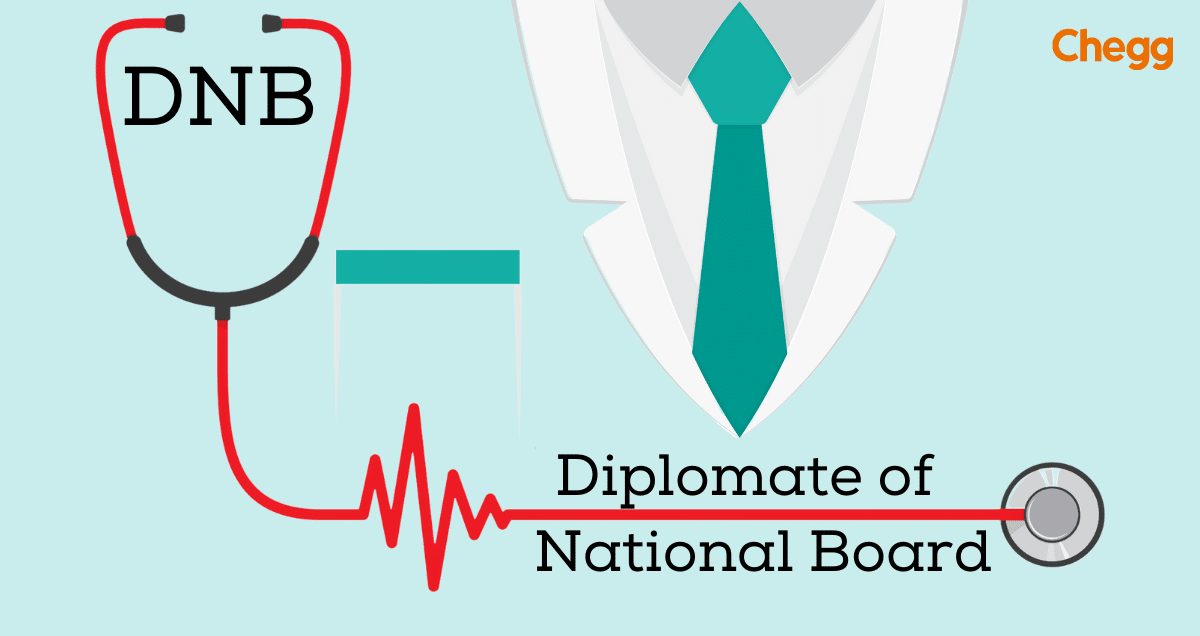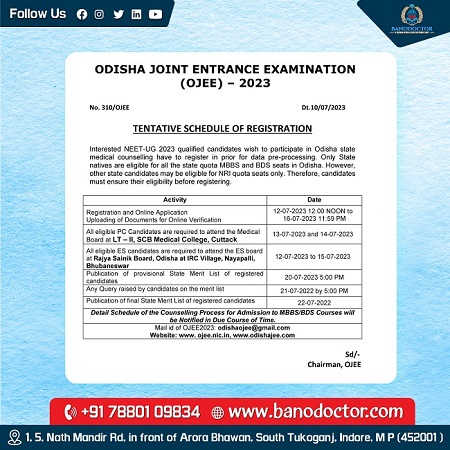
MBBS in Nepal for Indian Student - Courses, Fees, Admission, Rank, Admission Process -2024 | Bano Doctor is Here to Help You
Study MBBS in Nepal
Introduction to Study MBBS in Nepal
As an aspiring medical student, I have always been fascinated by the field of medicine and the prospect of pursuing a career in healthcare. Nepal, located in the heart of the Himalayas, has emerged as a popular destination for students seeking to pursue an MBBS (Bachelor of Medicine, Bachelor of Surgery) degree. In this section, I will provide you with a comprehensive introduction to Study MBBS in Nepal, including information on fees, colleges, and the admission process.
Nepal offers excellent opportunities for medical education, with its high-quality education system, experienced faculty, and affordable tuition fees. The medical colleges in Nepal are recognized by various international medical bodies, making their degrees widely accepted and respected globally.
One of the key advantages of studying MBBS in Nepal is the comparatively lower cost of education. The tuition fees in Nepalese medical colleges are much more affordable compared to other countries, making it an attractive option for students who wish to undertake medical studies without incurring a substantial financial burden.
Nepal is home to several prestigious medical colleges that offer MBBS programs. Some of the notable colleges include Tribhuvan University Institute of Medicine, Kathmandu University School of Medical Sciences, and B.P. Koirala Institute of Health Sciences. These colleges have state-of-the-art facilities, well-equipped laboratories, and experienced faculty members who strive to provide top-notch medical education to their students.
To pursue an MBBS in Nepal, international students must meet certain eligibility criteria and go through a competitive admission process. Applicants are typically required to have completed their 10+2 education in the science stream with a minimum aggregate score in subjects like Physics, Chemistry, and Biology. Additionally, students may need to appear for entrance exams conducted by the respective universities or medical colleges.
Once admitted to a medical college in Nepal, students can expect a comprehensive curriculum that combines theoretical knowledge with hands-on clinical training. The MBBS program typically spans a duration of five and a half years, including a one-year mandatory internship. The curriculum covers various disciplines of medical science, ranging from anatomy and physiology to pathology and clinical medicine.
Studying MBBS in Nepal not only provides a solid foundation in medical education but also offers opportunities for personal growth and cultural enrichment. The multicultural environment in Nepal allows students to interact with peers from diverse backgrounds, fostering a rich and collaborative learning experience.
In conclusion, pursuing an MBBS in Nepal can be a fulfilling and rewarding experience for aspiring medical students. With its affordable fees, renowned medical colleges, and well-rounded curriculum, Nepal has emerged as a preferred destination for those seeking quality education in the field of medicine.
The Medical Education System in Nepal
As an aspiring medical student, it is important to familiarize oneself with the medical education system in Nepal. Here, I will provide you with a comprehensive overview of how medical education is structured in this country.
- Duration of the MBBS program: In Nepal, the Bachelor of Medicine, Bachelor of Surgery (MBBS) program typically spans over a duration of five and a half years including one year of an internship. This program is divided into three phases: basic science, clinical science, and clinical postings.
- Basic Science Phase: During the initial two and a half years, students focus on the foundational sciences such as anatomy, physiology, and biochemistry. This phase mainly consists of theoretical lectures, practical sessions, and laboratory work.
- Clinical Science Phase: The following two and a half years focus on clinical subjects and practical training. Students gain hands-on experience through clinical rotations in various departments such as internal medicine, pediatrics, surgery, and obstetrics and gynecology. During this phase, students learn to diagnose and treat patients under the guidance of experienced doctors.
- Clinical Postings: After successfully completing the basic and clinical science phases, students undergo a year-long mandatory internship period called "clinical postings." During this period, students rotate through different specialized departments and apply their theoretical knowledge in real-world clinical settings. This internship provides valuable practical exposure and helps to develop essential skills.
- Licensing Exam: Upon completion of the MBBS program, graduates must pass the licensing examination conducted by the Nepal Medical Council (NMC) to obtain their medical license. This exam assesses their competency and understanding of medical knowledge and skills.
- Specialization: After completing the MBBS program, graduates have the option to pursue further specialization in various fields of medicine. These postgraduate programs, such as MD (Doctor of Medicine) and MS (Master of Surgery), typically span over a period of three years.
- Medical Colleges: Nepal is home to several reputable medical colleges offering the MBBS program. Some well-known institutions include Kathmandu University School of Medical Sciences, Institute of Medicine, B.P. Koirala Institute of Health Sciences, and Patan Academy of Health Sciences. These institutions have highly qualified faculty members and well-equipped facilities that ensure quality education and training.
- Admission Process: The process of admission to MBBS programs in Nepal generally includes a national entrance examination. Students must meet the eligibility criteria set by the respective medical colleges and obtain a qualifying score in the entrance examination to secure a seat.
The medical education system in Nepal provides a solid foundation for aspiring doctors. Through a comprehensive curriculum and practical training, students gain the knowledge and skills necessary to embark on a successful medical career.
Click Here to View - Top Medical Universities In Nepal
Top MBBS Colleges in Nepal 2024
As someone who has done extensive research on medical colleges in Nepal, I can confidently share some of the top institutions in the country for pursuing an MBBS degree. These colleges have earned a reputation for providing high-quality education and producing skilled medical professionals. Here are the top medical colleges in Nepal for MBBS:
- Tribhuvan University (TU): TU is widely considered as one of the best universities in Nepal for medical education. It offers MBBS programs in various affiliated medical colleges across the country. The Institute of Medicine (IOM) under TU is highly esteemed and has produced many successful doctors.
- B.P. Koirala Institute of Health Sciences (BPKIHS): Located in Dharan, BPKIHS is renowned for its quality medical education. It offers excellent facilities and a conducive learning environment for students. The college follows a rigorous curriculum, ensuring that students are well-prepared for their medical careers.
- Kathmandu University School of Medical Sciences (KUSMS): KUSMS is a premier medical institution affiliated with Kathmandu University. It provides comprehensive medical education with a strong focus on practical training. Its teaching hospitals and modern facilities help students gain hands-on experience.
- Patan Academy of Health Sciences (PAHS): PAHS is a prestigious medical institute known for its exceptional academic programs and state-of-the-art facilities. Located in Lalitpur, it offers a holistic approach to medical education, emphasizing both theoretical knowledge and clinical skills.
- Nepal Medical College (NMC): NMC is a top-ranked medical college in Nepal that provides quality education and training to aspiring doctors. With a highly qualified faculty and well-equipped laboratories, NMC offers an excellent learning environment for students.
- Manipal College of Medical Sciences (MCOMS): MCOMS is an esteemed medical college affiliated with the Manipal Academy of Higher Education (India). It follows a rigorous curriculum and offers hands-on training in its own teaching hospital. MCOMS is known for its international exposure and collaborations.
These colleges have consistently produced skilled and competent doctors who have excelled in the medical field. However, it is important to note that the rankings and preferences may vary based on individual preferences, location, and other factors. Therefore, it is advisable to research each college thoroughly and consider personal factors before making a decision.
Attaining an MBBS degree from one of these highly esteemed medical colleges can provide you with a strong foundation for a successful medical career.
Admission Process for MBBS in Nepal
As an international student aspiring to pursue an MBBS degree in Nepal, it is essential to understand the admission process. Here, I will provide you with a comprehensive guide on how to get admission to an MBBS program in Nepal.
- Eligibility Criteria:
- Before applying for an MBBS program in Nepal, it is crucial to meet the eligibility criteria set by the respective colleges or universities. The general eligibility criteria for international students include:
- Completion of high school education or equivalent with a minimum aggregate score of 50%
- Physics, Chemistry, and Biology as mandatory subjects in high school
- Minimum age of 17 years
- Qualifying in the entrance examination conducted by the university or relevant authorities
It is important to note that specific colleges or universities may have additional eligibility requirements. Therefore, it is recommended to check the official websites or contact the respective institutions for detailed information.
- Entrance Examination:
- Most medical colleges in Nepal require students to appear for entrance examinations as part of the admission process. The entrance exams are conducted in Nepal and some select locations in other countries. Some of the common entrance exams for MBBS in Nepal are:
Common Entrance Examination for MBBS (MECEE-BL ), conducted by MEC of Nepal
These entrance exams assess the knowledge and aptitude of students in subjects such as Physics, Chemistry, Biology, and Mathematics. It is crucial to thoroughly prepare for these exams to secure a good score and increase the chances of admission.
- Application and Counseling:
- After successfully clearing the entrance examination, the next step is to apply for admission to the desired medical college or university in Nepal. The application process typically involves:
- Obtaining and submitting the application form from the respective college/university
- Submitting the necessary documents, including academic transcripts, entrance exam scorecard, passport, photographs, and other requirements as specified by the institution
- Paying the application fees
Once the applications are received, the colleges/universities will conduct counseling and selection processes to finalize the admission of candidates. This may include interviews, group discussions, or additional tests to evaluate the suitability of candidates for the MBBS program.
- Document Verification and Visa Process:
- After the selection process, candidates who are offered admission are required to undergo document verification. This involves submitting the original documents for verification purposes at the respective college/university.
Additionally, international students are required to obtain a student visa to study MBBS in Nepal. The visa process usually involves submitting the necessary documents, including the offer letter from the college/university, academic transcripts, passport copies, and visa application forms. It is advisable to check the official website of Nepal's embassy or consulate in your country for detailed instructions on the visa application process.
- Commencement of Classes:
- Upon successful completion of the admission process, candidates will receive a confirmation letter or offer letter from the college/university. It is important to follow the instructions provided and complete the necessary formalities, such as fee payment and registration, to secure your seat and join the MBBS program in Nepal.
Remember, the admission process may slightly vary among different colleges and universities in Nepal. Therefore, it is crucial to keep yourself updated with the latest information by regularly checking the official websites or contacting the admissions office of your preferred institutions.
Entrance Exams for MBBS in Nepal
MECBL-2024 Exam in Nepal to Study MBBS/BDS Course
Are you an MBBS aspirant aiming to conquer the MECBL-2024 exam in Nepal? Whether you're a student or an educator guiding future doctors, this comprehensive guide will equip you with everything you need to know about this critical exam. From its format and syllabus to preparation tips and post-exam procedures, we've got you covered. The Medical Education Commission Of Nepal Conduct Uniform Exam For Medical Course.
MBBS Fees in Nepal for Indian Students
| Name of college | Total Fee | 1st Year Fee |
| Nepalgunj Medical College | INR 60,00,000 | INR 30,00,000 |
| College of Medical Science Nepal | INR 58,00,000 | INR 30,00,000 |
| Manipal College Of Medical Science | INR 75,00,000 | INR 37,50,000 |
| Kathmandu Medical College | INR 54,00,000 | INR 27,00,000 |
| Nobel Medical College | INR 56,00,000 | INR 28,00,000 |
| Nepal Medical College | INR 52,00,000 | INR 26,00,000 |
| Lumbini Medical College | INR 53,00,000 | INR 27,00,000 |
| Birat Medical College | INR 53,00,000 | INR 27,00,000 |
| Devdaha Medical College And Research Institute | INR 52,00,000 | INR 25,00,000 |
| National Medical College | INR 62,50,000 | INR 32,00,000 |
| Universal College Of Medical Sciences Nepal | INR 58,00,000 | INR 28,00,000 |
| Chitwan Medical College | INR 52,00,000 | INR 26,00,000 |
| KIST Medical College | INR 48,00,000 | INR 24,00,000 |
| Gandaki Medical College | INR 50,00,000 | INR 25,00,000 |
| Janaki Medical College | INR 46,00,000 | INR 23,00,000 |
Safety and Security
Safety is an important consideration for international students. Nepal, as a country, is generally safe for students, with a low crime rate. However, it is always recommended to take necessary precautions and be aware of your surroundings, especially when traveling alone or at night. Many colleges and universities prioritize the safety of their students and provide security measures on campus.
Cultural Adaptation
Living in a new country can be a cultural adjustment for international students. Nepal has a rich and diverse culture, and adapting to the local customs and traditions can enhance your experience. Engage with local communities, participate in cultural events, and explore the country's natural beauty to make the most of your time in Nepal.
In conclusion, international students pursuing MBBS in Nepal have a range of living and accommodation options available. Whether you prefer on-campus or off-campus living, it is important to consider factors such as convenience, cost, safety, and cultural adaptation. Make sure to research and plan ahead to find the best housing option that suits your needs and preferences during your medical education journey in Nepal.
Post-graduation options after MBBS in Nepal
After completing my MBBS in Nepal, I have several post-graduation options to choose from. These options not only provide further specialization but also enhance my knowledge and skills in a specific area of medicine. Here are some of the post-graduation options available for me in Nepal:
- MD/MS Programs: The most common post-graduation option after MBBS in Nepal is to pursue an MD/MS degree. These programs offer specialization in various fields such as General Surgery, Orthopedics, Pediatrics, Obstetrics and Gynecology, Internal Medicine, and more. MD/MS programs are offered by reputed medical colleges and universities in Nepal.
- MSc in Medical Sciences: Another option for post-graduation is to pursue an MSc degree in Medical Sciences. This program focuses on in-depth research and advanced knowledge in a specific area of medical sciences. It offers specialization in various fields such as Anatomy, Pharmacology, Microbiology, and Pathology. MSc programs are usually conducted by medical colleges and universities affiliated with Tribhuvan University.
- DM/MCh Programs: For those aspiring to become super-specialists, pursuing a DM (Doctorate of Medicine) or MCh (Master of Chirurgiae) program is a viable option. These programs offer specialization in advanced medical fields like Cardiology, Neurology, Gastroenterology, Plastic Surgery, Urology, and more. DM/MCh programs are usually offered by renowned medical colleges and universities in Nepal.
- PhD in Medical Sciences: If I am inclined towards research and academic pursuits, pursuing a Doctor of Philosophy (PhD) in Medical Sciences is an excellent choice. This program focuses on conducting independent research and making significant contributions to the field of medicine. PhD programs are offered by selected medical colleges and universities in Nepal.
- Fellowship Programs and Short-Term Courses: Apart from the above options, there are various fellowship programs and short-term courses available for post-graduates in Nepal. These programs provide specific training in specialized areas and subspecialties of medicine. Fellowship programs are typically offered by reputed hospitals and medical institutions, allowing me to gain practical experience and specialization in my chosen field.
It is important to thoroughly research and consider my interests and career goals before choosing a post-graduation option. Each program has its own requirements and eligibility criteria, so it is essential to evaluate them carefully. Additionally, I should also take into account the reputation of the institution offering the program, the availability of resources, and future career prospects.
Embarking on a post-graduation journey after my MBBS in Nepal will not only broaden my horizons but also open up opportunities for a successful and fulfilling career in the field of medicine.
Career Opportunities after MBBS in Nepal
After completing my MBBS in Nepal, I realized that the degree opened up a plethora of career opportunities for me. Here are some of the career paths that I considered and explored:
- Medical Practitioner: As an MBBS graduate, I had the option to work as a medical practitioner in various healthcare settings, such as hospitals, clinics, and community health centers. I could choose to specialize in fields like internal medicine, pediatrics, obstetrics and gynecology, surgery, psychiatry, and many others.
- Government Hospitals and Public Health Centers: The government's healthcare sector in Nepal offers lucrative employment opportunities for MBBS graduates. I could apply for positions in government hospitals and public health centers, providing medical services to the general population. This option allows me to contribute to the welfare of the community, especially in rural areas where medical facilities may be limited.
- Private Hospitals and Clinics: Private hospitals and clinics are on the rise in Nepal, offering advanced medical services and specialized treatments. MBBS graduates can work in these establishments, providing quality healthcare to patients and gaining exposure to modern medical techniques.
- Research and Academia: For those interested in furthering their knowledge and contributing to medical research, pursuing a career in research and academia is an excellent option. I could join research institutes, universities, or medical colleges as a faculty member, conducting research, and teaching medical students.
- Medical Entrepreneurship: Another exciting option is to venture into medical entrepreneurship. I could open my clinic, diagnostic center, or specialized healthcare service, providing innovative and personalized medical care. This career path allows me to be my boss and create a unique healthcare experience for patients.
- International Opportunities: MBBS graduates from Nepal also have the opportunity to explore international career options. Many countries offer attractive prospects for doctors, including the possibility of working in reputed hospitals, research institutes, or even pursuing further specialization abroad.
- Specialization and Super Specialization: After completing my MBBS, I could opt for postgraduate specialization courses like MD/MS or pursue super specialization in areas like cardiology, neurology, oncology, gastroenterology, etc. These advanced courses enhance my skills, knowledge, and employment prospects significantly.
As an MBBS graduate in Nepal, the career opportunities are diverse and promising. Whether I choose to work as a medical practitioner, venture into research and academia, or explore international opportunities, the skills and knowledge acquired during my MBBS program have equipped me for success in various healthcare fields. It's an exciting journey ahead, filled with opportunities to make a positive impact on the lives of people through healthcare.
Study MBBS in Nepal : Top MBBS Colleges in Nepal 2024 - Courses, Fees, Admission, Rank
Making the right career choice is an essential step for any student. Medical colleges in Nepal are highly sought-after by international students, making getting an MBBS there highly competitive. If becoming a great doctor is your goal, then studying here could be exactly what you need to reach success.
Are you considering becoming a general physician or specialist medical practitioner? Why not Study MBBS in Nepal country? We offer some appealing guidelines for entering this profession.
Benefits of Studying MBBS in Nepal
Studying abroad will give you the edge for an international career. With fierce competition, getting accepted to one of Nepal's many renowned institutions requires preparation. All colleges provide hostel accommodations with standard amenities for all students. English serves as the medium of instruction here, and English-speaking communities are welcoming throughout the year - weather permitting. Top-rated medical colleges provide quality education to aspiring pupils through curriculums designed with international standards in five and a half years. It is advised to take the course quickly in five and a half years!
Why study MBBS in Nepal? The country boasts 20 medical colleges that provide quality education while emphasizing practical knowledge. As the MBBS exam in Nepal is like that in India, passing it or graduating becomes much more straightforward.
Nepal has evolved beyond being just a vacation spot. Now it offers many MCI-approved institutes that allow Indian students to practice medicine legally in Nepal. Suppose you're considering studying medicine here in Nepal. Here are provides all the essential information needed to get started.
MEC UG Exam (Medical Education Common Entrance Examination) Eligibility Criteria
Nepal Medical Commission in Sanothmi, Bhaktapur, invites eligible candidates to apply online for MECEE BL programs at various universities and colleges within Nepal. Candidates who meet all necessary eligibility criteria. Can take the examination to be selected for medical bachelor courses within Nepal. Eligible individuals may apply many times; eligibility criteria are outlined below.
Candidates must have completed higher secondary certification education (10+2 or equal) with Physics, Chemistry, and Biology from a recognized board within the country.
- The candidates must have achieved at least 50% marks or an equal GPA.
- Candidates must achieve a minimum score of 50% or above on MECEE BL or MECEE UG to be eligible for the entrance examination.
- Candidates who applied through MECEE 2024 will have priority for admission into medical institutes for bachelor programs.
- Foreign candidates who have qualified for the examination must present original documents upon admission.
Candidates qualified to enroll will be informed of their options and given priority when selecting an institution—a computer-based matching process. Then takes place based on merits earned and which colleges offer the most preferred seats among available ones.
After a matching is completed for international candidates, any remaining seats will be transferred to the Nepalese Open (paying) Seats.
How to apply for MECEE UG 2024
The application form is filled out electronically, starting From 12 june 2034 and running until 02 July 2024. There are various steps involved in the application process - eligible candidates can apply for many programs with separate bank payments for each one. Foreign nationals applying for MECEE BL 2024 must select one of the options listed below.
MECEE BL Exam -2024 Importent Date
|
1. Entrance examination schedule: |
||
|
S.N, |
Programs |
Exam Date &Time |
|
1 |
MBBS |
17 August 2024 from 11:00 AM to 2:00 PM |
|
2 |
BDS |
18 August 2024 from 11:00 AM to 2:00 PM |
|
3 |
BSc Nursing/BSc Midwifery, |
19 August 2024 from 11:00 AM to 2:00 PM |
|
|
BASLP, B Perfusion Technology |
|
|
|
BAMS, BNS/B1dS, BSc MLT, |
|
|
4 |
BSc M Ts BPT, Pharm, |
20 August 2024 from 11:00 AM to 2:00 PM |
|
|
B Optometry, |
|
|
5 |
BPH |
21 August 2024 from I :00 AM to 2:00 PM |
Any international student who has passed their respective countries' national level entrance examination.
Complete all necessary fields and pay the application fee. There is an editing option before submission. But, once submitted, it cannot be changed. You may reapply with a new bank payment voucher if needed. Furthermore, a detailed examination schedule and seat distribution will be released soon on the official website; stay informed.
Detail information about Making Payment
Below, please find all the necessary information for depositing online application fees for MECEE BL 2024.
- Candidates can begin paying application fees starting Fom June 12/2024 and closing on 9 July 2024 at 05:00 PM.
- Entrance examination fees for foreign candidates: 8000/-(excluding bank charges).
Why Study MBBS in Nepal?
1. Affordable Tuition Fees
One of the most compelling reasons to choose Nepal for your medical studies is the cost. Tuition fees are significantly lower compared to many Western countries, making it a more affordable option for international students. This way, you can gain a top-notch medical education without breaking the bank. The complete package Start From 45 Lakh And ends Upto 65 lakh.
2. High-Quality Medical Education
Nepal offers high-quality medical education. Many universities here follow international curriculum and teaching standards, ensuring that the education you receive is globally recognized. This means you can compete on an international level after graduation.
3. Diverse Clinical Exposure
Nepal provides a unique opportunity for practical learning. You will get to train in a wide range of clinical settings, from urban hospitals to rural and remote areas. This diverse exposure will enrich your medical experience, preparing you to handle a variety of medical cases.
4. Proximity to India
The close proximity to India provides easy access to a diverse range of medical cases and practical learning opportunities. This can be particularly beneficial for gaining hands-on experience in various medical conditions and treatments.
5. Cultural Diversity
Nepal is known for its cultural diversity and welcoming environment for international students. This multicultural atmosphere will provide you with a unique global perspective in your medical training, enriching your personal and professional life.
6.NMC Approved Carriculam
NMC Of India Recgonize the digree Of Nepali Medical College
Best College to Pursue an MBBS Course in Nepal
Nepal boasts many top-tier medical universities. To help you choose the best option, we've listed five of Nepal's most renowned MBBS universities:
- Lumbini Medical College.
- Nobel Medical College
- Nepalgunj Medical College
- Manipal College of Medical Sciences, Nepal
- Kathmandu University School of Medical Sciences.
Benefits of Studying MBBS in Nepal for Indian Students
We've outlined all the unique attributes that Study MBBS in Nepal offers:
- Reputable medical universities.
- First-class infrastructure to support medical studies.
- English-taught training programs are available.
- Economically priced tuition fees for medical courses
- Universities in Nepal are accredited by NMC & WHO.
- No donation fees or capitation charges are applied.
- Easy passage through IELTS/TOEFL exams without complications.
- Colleges provide hostel and food services free of charge
- Practical Internship programs in standard hospitals.
- Living expenses in Nepal are among the lowest among Asian countries.
Eligibility Criteria for Receiving MBBS Admission
Nepal considers the following criteria when admitting students into its MBBS course:
- Students should have completed 10+2 or an equal course.
- A minimum add score of 50% through science faculty is required.
- The course curriculum should list PCB (Physics, Chemistry, Biology) subjects.
- Passing the NEET examination is compulsory for Indian students.
- University medical entrance tests are administered separately
Admission Process for MBBS Admission in Nepal
To apply to top MBBS college in Nepal, here is an overview of their admission process:
- Determine which university offers MBBS programs in Nepal
- Select the college and visit its official website to review the entry requirements
- Determine which entrance test is necessary for admission, then administer it. Pay any applicable application fees if stated.
- Submit all application forms and related documents by the application deadline.
- If scheduled, attend Open House Matching .
- Upon confirmation, arrange for enough funds to live in Nepal.
Cost of Studying MBBS in Nepal
The cost of studying for an MBBS in Nepal is determined by two factors, Nepal MBBS fees and living costs in the country. By thoroughly understanding these two variables, funding your studies will become more straightforward.
Let's examine them one at a time: Tuition Fees.
Tuition fees are determined by two components: tuition fees and living costs in the country. Based on these figures, funding your studies will be fine. *Stipends provide financial relief when the need arises.
In Nepal, tuition fees to study MBBS range from 5,00,000 NPR to 36,89,043 NPR annually, depending on the study year.
Cost of Living
In Nepal, the cost of living is 53,335 NPR per month. This figure covers all relevant expenses like accommodation, rent, utilities, food, and transport. However, exact amounts may differ depending on your lifestyle choices and where you live. Generally speaking, some areas, such as Pokhara, have cheaper living costs than others in Nepal.
How to achieve MBBS Admission in Nepal without NEET for Indian Student ?
well it is most common Question By MBBS Aspirant From India, Doctor is explaining Now If You Are Not Qualified In NEET 2024 there is option To Pursue MBBS In Nepal By Wring And Qualifying MECBL-2024 Exam But Again You have a Constrain when You Come Back To India and contact NMC For Eligibility Certificate to Sit In FMGE Exam, You Must Be NEET Qualified.
So If You Want to Pursue MBBS from Nepal and Want to Settle There then it’s The Year Saving Option For you, But If You Wish To Come Back India For Practices You should be NEET 2024 Qualified.
What documents are needed for studying in Nepal?
Every document required for MBBS admission in Nepal can be found here:
- Marksheet/transcript of Xth grade from recognized board.
- Marksheet/transcript of XIth grade from recognized board.
- Passport page showing name and nationality.
- NEET-2024 scorecard of the respective admission year.
- Certificate of health and fitness for candidates.
- School Leaving Certificate (SLC).
- Recently taken vibrant photos (5).
- Certificate of Conduct.
- International Recognition by Universities in Nepal.
List of global medical councils that have recognized MBBS degrees in Nepal:
- World Health Organisation (WHO)
- National Medical Commission (NMC)
- United Nations Educational, Scientific and Cultural Organization (UNESCO).
- United States Medical License Examination (USMLE)
- Foundation of Advancement of International Medical Education and Research - IMED (FAIMER).
- General Medical Council (GMC-UK)
- World Directory of Medical Schools (WDMS)
- Professional and Linguistic Assessment Board Test (PLAB)
- Ministry of Education, India
Frequently Asked Questions(FAQS) - MBBS in Nepal for Indian Student - Courses, Fees, Admission, Rank, Admission Process -2024
According to research conducted by Select Your University, B.P. Koirala Institute of Health Sciences and Manipal College of Medical Sciences are among the best places for MBBS studies in Nepal.
Nepal's cold climate may make it difficult for Indian students from the south and east to adjust.
In Nepal, MBBS courses begin in October. To apply for this medical degree program, please ensure you meet the age requirement of 17 years or older and a maximum of 25 years old.
On average, the course costs around Rs. 45–61 lakh, including tuition fees and hostel accommodation throughout Nepal.
More than 10,000 students are already enrolled in Nepal, from school level to graduate studies.
Nepal boasts 11 medical institutes that are NMC-recognized and recognized by international bodies.
In Nepal, an MBBS course lasts 4.5 years plus another year of internship.
Nepal's minimum & maximum course fee to Study MBBS in Nepal is 45 lakh to 65 lakh.
In Nepal, MBBS courses begin in October. To apply for this medical degree program, please ensure you meet the age requirement of 17 years or older and a maximum of 25 years old.









































![Online Application Form for the National Eligibility-cum-Entrance Test [(NEET (UG)] 2024](https://www.banodoctor.com/public/notifications/1707717098.webp)







